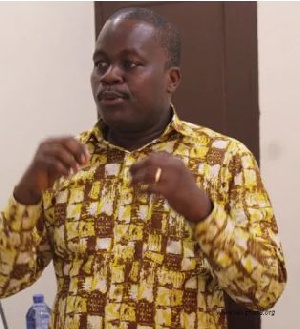 Benjamin Anang Sowah, the National Advocacy Coordinator of SOS Children
Benjamin Anang Sowah, the National Advocacy Coordinator of SOS Children
Mr Benjamin Anang Sowah, the National Advocacy Coordinator of SOS Children’s Villages – Ghana has called on community leaders to scale-up their efforts to advocate quality education for school children.
He said quality education was one of the SOS 2030 advocacies strategic ‘4’ to make a more profound impact on children’s teaching and learning.
Mr Sowah made the call at a training workshop on the “Quality Education Now” of the SOS Children’s Villages – Ghana for assembly members, unit committee members, youth leaders and community-based organisations.
He said the training was to build the capacities of communities to develop and improve their skills in advocacy for policy changes and enforcement of congenial study atmosphere for equality education.
The participants were taken through some advocacy issues, goals and objectives, building support, message development, channels of communication, implementation and monitoring and evaluation.
Mr Sowah who was the Facilitator of the training urged them to maintain contact with individuals and organisations that share or support common their goals to work together to achieve changes in policy, law or programmes on issues about education.
He asked community leaders to network to pool resources and provide support for actions for common goals.
Mr Sowah said: “A problem that requires a policy solution or a decision maker’s action is an advocacy issue and advocates must work as groups to rectify the situation.”
Mr Kanortey David, the Coordinator of Quality Education Now – Ashaiman urged the participants to apply the knowledge acquired at the workshop to effect policy changes in the districts and municipal assemblies for improved education delivery in public schools.
“Since the school children are usually at the suffering end and are vulnerable and voiceless, it behooves on community leaders and school authorities to be their voices,” he said.